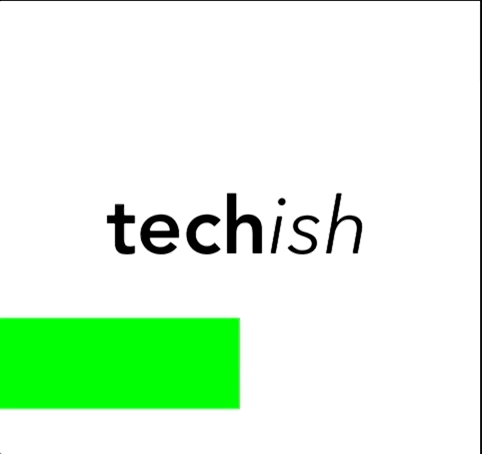In This Week’s Email
What’s on our mind: Identity Inventory & Intersectionality
New episodes of Techish will return in 2024
Free inclusion resources
Intersectionality and the identity inventory
In order to empathise with the lived experiences of others we need to improve our understanding of intersectionality.
In 2017, YW Boston released an article entitled, ‘What is intersectionality, and what does it have to do with me?’ describing intersectionality as “a framework for conceptualizing a person, group of people, or social problem as affected by a number of discriminations and disadvantages. It takes into account people’s overlapping identities and experiences in order to understand the complexity of the prejudices they face.”
Race, class, gender identity, sexual orientation and religion are key factors when discussing intersectionality, as they contribute to lack of identity and miss-representation.
What the research says
Law professor and social theorist, Kimberlé Crenshaw, first coined the term in the ’80s, following a rise in Black feminists speaking out about how the majority of Black women weren’t able to identify with the issues raised by white feminist during that time.
For example, white women spoke out about the pressures they felt having to stay home and play house. Most Black women didn’t have a choice and had to continue going to work so they could support their families financially.
Being unable to identify with these types of issues highlighted a divide within society and highlighted the lack of representation towards Black women and their struggles.
Fuelled by the injustice of how women of colour were treated during the Civil Rights movement, and the lack of correct representation with society, the term, intersectionality, began to gravitate into mainstream terminology.
Awareness of race and gender bias fuel intersectionality, and social equality. A good activity when discussing intersectionality is to ask yourself the following questions:
Do you recognise privilege?
Do you tarnish all women with the same brush?
Do you use phrases such as “all women think…” or “all Black women believe?”
It is important to recognise that many people have experienced the world differently, due to their overlapping identity markers.
By being more exposed to other points of view, and being more aware of the space you occupy, a greater understanding of society is gained.
In our workshops, we challenge learners to take an inventory of all their identity traits and consider which traits give them privilege in society today, and which traits expose them to bias and discrimination.
As our CEO Abadesi often says, aim to check your privilege as often as you check your spelling.
Team activities
In your next team meeting or all hands. Ask folks to reflect on what nuances lie in similar identities, e.g. how do folks of the same race and gender still experience different types of prejudice based on other aspects of their life like their socioeconomic class?
Re-framing constructive feedback through the lens of bias. Was there a time you created a policy that applied to “all women” or “all men” or “all parents” that didn’t account for the differences within these identity groups? How could you re-examine those decisions through the lens of intersectionality?
In your next candidate evaluation written response. Are you still rejecting candidates on the basis of ‘culture fit’? Dive deeper into intersectionality and challenge yourself to consider how this hinders your goals of creating a more equitable company.
New habits to make a difference
Start a new past time in your team where you share stories from your lived experiences, stories which may challenge what folks think about your background and upbringing.
Expand the definition of terms like “women” within your community to be expansive to cover the range of identities and nuance within this group: dive into race, age, gender, sexual orientation, socioeconomic background and more.
Challenge yourself to understand the concept of intersectionality so well you could explain it to a four year old, then once you can, discuss it in your inner circles with family and friends. Encourage them to understand it better and apply it as a lens in their life.
Brand new #Techish is back in 2024, catch up on reruns
Listen to the back catalogue of one of the UK’s Top podcasts until we return in 2024 — co-hosts Michael and Abadesi dive into the essential stories across tech and pop culture🍿💰🎧.





